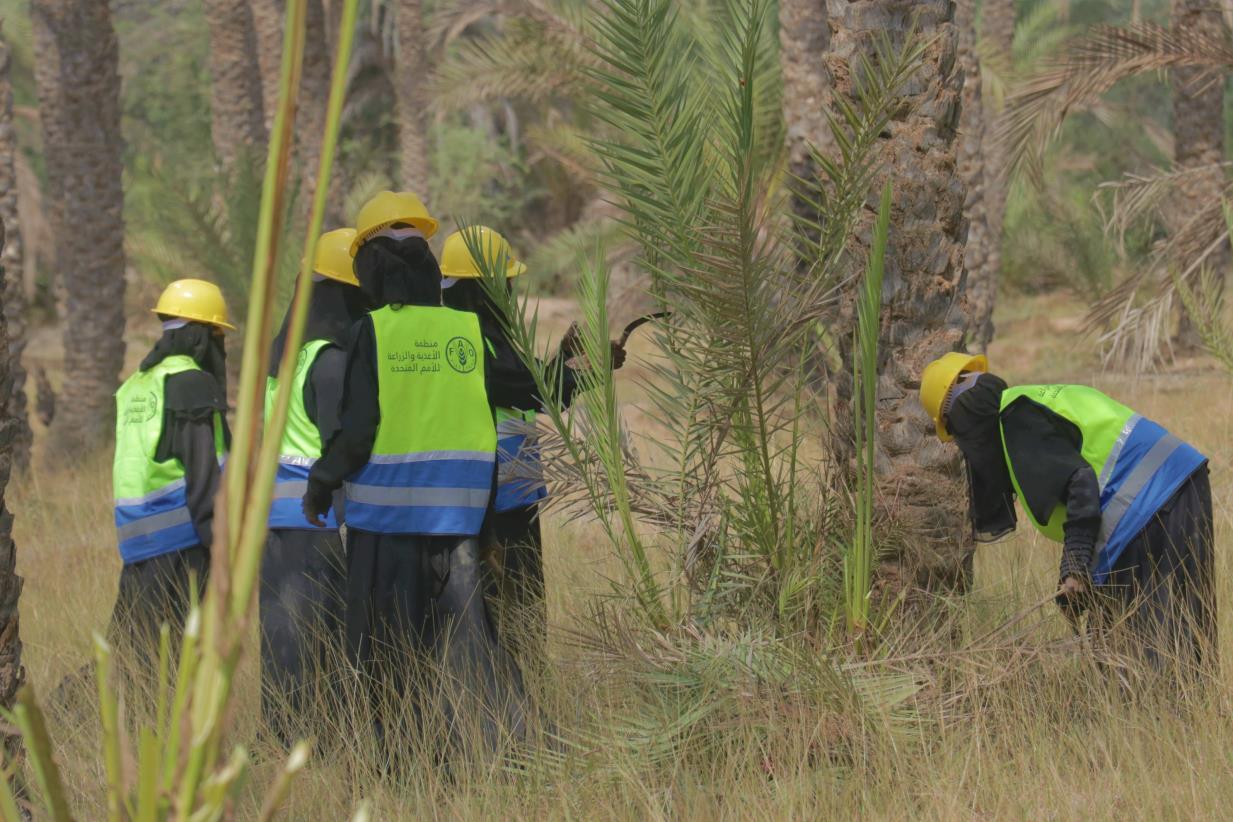Germany supports FAO’s efforts to strengthen the resilience of Yemeni communities to cope with crisis and prevent a looming famine

©FAO - The project aims at The support is expected to help thousands of destitute Yemenis overcome hunger by providing cash assistance, increasing household incomes and training for good agricultural practices and increased production.
25 January, 2021 , Sana'a - The Federal Republic of Germany, through the German Development Bank (Kreditanstalt für Wiederaufbau - KfW) has contributed EUR 17,950,000 to support work by the Food and Agriculture Organization of the United Nations (FAO) to rehabilitate key irrigation and agricultural infrastructure in Yemen and communities training.
The three-year resilience programme (2021–2023) in the irrigation and agriculture sector of Yemen aims to safeguard and enhance people's livelihoods through a variety of activities. These include rehabilitation of farm level irrigation infrastructure, job creation and income generation via cash-for-work projects, and measures to strengthen water governance in project districts. FAO will also engage with communities to increase their climate resilience, reduce conflict over water, and conduct training programmes in disaster risk reduction.
Over 130000 people will benefit directly while over 330000 others not directly involved in project implementation, will benefit indirectly from the project's interventions throughout the five targeted districts. The stakeholders are members of local water user associations, target districts committees, local government departments, and residents in Wadi Hadhramaut, Wadi Bana in the Abyan Governorate and the Dhamar Wadi catchment in the Dhamar Governorate.
"Agriculture represents a lifeline for thousands of rural Yemeni families, including those who are newly displaced and their host community. Increased access to water for irrigation through rehabilitated water infrastructure is a real opportunity for them to restore their livelihoods and cope with the ongoing crisis," said Hussein Gadain, FAO Representative in Yemen. "This generous contribution to FAO's work in Yemen will help reduce severe hunger among highly vulnerable families" he added.
The project focuses in particular on gender-sensitive governance and the equitable representation of women as water users in local governance structures; strengthening the role of women in reconciling water disputes is one of the project's aims. The cash for work component of the project will also contribute to enhancing rural women's livelihoods while the capacity building component will improve good agricultural practices of farming communities enabling them to increase their production and access markets as well as adapting known disaster risk reduction good practices to the local context and ensure that communities including women and youth are capable of mitigating risks created by climate change at the local level.
According to the recent Integrated Food Security Phase Classification (IPC) analysis issued in December 2020, over half the Yemeni population (16.2 million) are facing crisis levels of food insecurity (Phase 3+) by mid-2021. The conflict in Yemen has exacerbated the existing water crisis, and that in turn has helped fuel continued conflict between communities. Water scarcity affects the daily life of Yemenis, especially in the agriculture sector, where 90 percent of water resources are used for irrigation and where food production is negatively affected by scarce water resources. By increasing investments in this vital sector to improve water storage and distribution and address water quality issues, FAO is helping to increase agricultural production, strengthen people's livelihoods, and reinforce food security.
